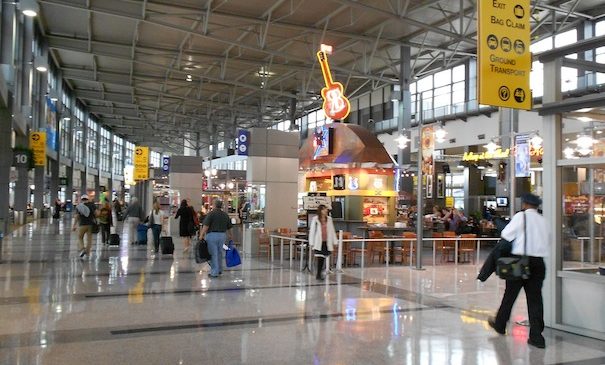Council declines to vote on airport lounge contract
Wednesday, February 26, 2020 by
Jo Clifton What started as an objection from the second-place bidder for a lucrative contract to build and operate a lounge at Austin-Bergstrom International Airport ended with Council rejecting staffers’ recommendation and sending them back to the drawing board at last Thursday’s meeting.
Staff had recommended awarding the contract to MAG USA, which was promising the city $1,025,000 a year in rental revenues – more than twice the amount promised by the second-ranked bidder, Airport Dimensions. However, Airport Dimensions had considerably greater participation from its minority-owned partner, TES.
According to a memo from Jacqueline Yaft, executive director of the Department of Aviation, American, Delta and United airlines have all “invested significant resources in designing, developing, and operating lounges at the airport for their specific airline customers. To provide traveling passengers from other airlines a comfortable environment with similar airport lounge amenities, the airport issued a solicitation for the design, development, and operation of a common-use airport lounge facility in the Barbara Jordan Terminal.”
The memo adds that Austin-Bergstrom served 17 million passengers last year and that number is expected to double in the next two decades.
No one argued against the need for an additional lounge, but Council heard both legal and emotional arguments in favor of the second-place bidder. Rebecca Kahn, owner of the massage business Knot Anymore, told Council that after she lost her airport contract to another bidder in 2017, revenues were cut by 95 percent and she had to lay off 30 employees. Despite her entreaties at the time, she said only Council members Kathie Tovo and Leslie Pool voted for her company.
If Council eventually grants the contract to Airport Dimensions, Knot Anymore would provide massage services at the airport once more and Kahn would have a stake in the business.
Representatives of MAG USA, staff’s chosen bidder, said the process had been fair and transparent. They pointed out that they had a partnership with American Express and their subcontractor was a minority-owned business, the Mitchell Group. Also speaking for MAG USA was a representative of Mozart’s Coffee Roasters, a local business.
However, the item appeared on the Council agenda as an up or down vote for MAG USA, with no option for choosing another bidder. Council members Pool, Tovo and Ann Kitchen all expressed objections to the agenda language.
Tovo specifically requested that when the contract comes back to Council it be written in the usual language, not just an up or down vote on one bidder. The agenda language typically gives Council the choice to authorize negotiation and execution of an agreement with the bidder staff members have chosen, “or one of the other qualified responders” to the solicitation.
Council Member Pio Renteria said he wanted to make a motion to postpone the item, and Council members Jimmy Flannigan and Natasha Harper-Madison agreed.
With the majority of Council members saying they needed more information or wanted to postpone the item and no member objecting, Mayor Steve Adler said the item would be withdrawn.
Adler said the argument he had not previously heard was that the city should be taking into account equity ownership by women and minority-owned businesses.
Susana Carbajal, assistant director of Austin-Bergstrom, told Council that for the past 10 years the airport has evaluated projects for their compliance with minority participation requirements on a “pass-fail basis.” Edward Campos, interim director of the city’s Small and Minority Business Resources Department, said federal law requires the pass-fail evaluation, so if the bidder meets the threshold requirement of 11 percent minority participation, it will receive a passing grade in that area. He said under federal regulations no extra points would be awarded for higher minority participation.
MAG USA was expected to “achieve a 13 percent (disadvantaged business enterprise) goal,” according to the memo from Yaft.
The same memo noted that the Austin Airport Advisory Commission took no action on the proposed contract. Yaft wrote that Airport Dimensions addressed the commission along with its local historically disadvantaged partner, “which has a local presence. Federal regulations prohibit the city from awarding airport contracts based on local presence,” she said.
Photo by Altairkh (Own work) [CC BY-SA 3.0], via Wikimedia Commons.
The Austin Monitor’s work is made possible by donations from the community. Though our reporting covers donors from time to time, we are careful to keep business and editorial efforts separate while maintaining transparency. A complete list of donors is available here, and our code of ethics is explained here.
You're a community leader
And we’re honored you look to us for serious, in-depth news. You know a strong community needs local and dedicated watchdog reporting. We’re here for you and that won’t change. Now will you take the powerful next step and support our nonprofit news organization?











